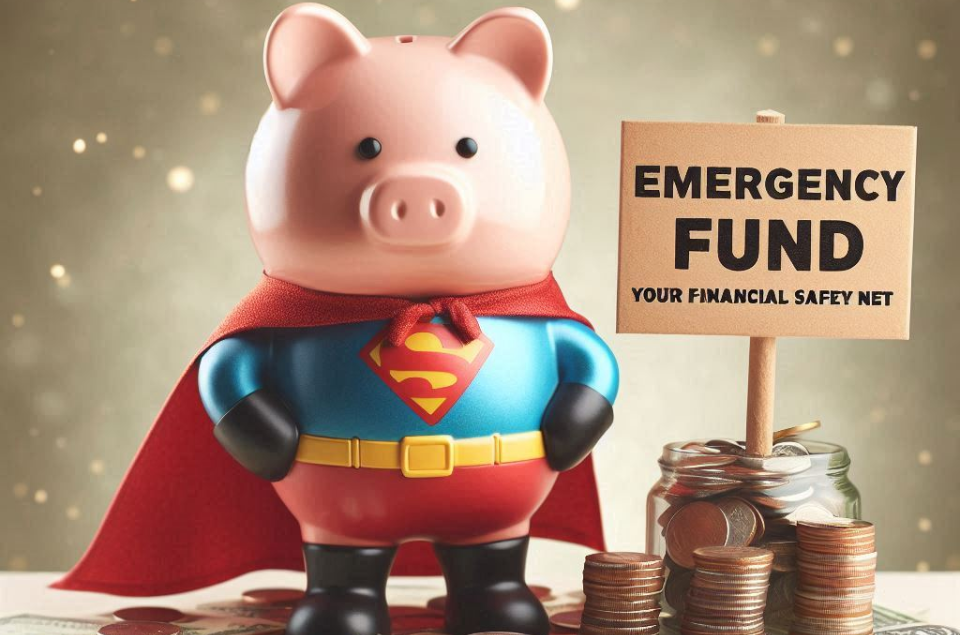
Emergency Fund Importance: Why You Need One
Introduction: What is an Emergency Fund?
Imagine you’re going through life smoothly, and suddenly, you have an unexpected expense like a medical bill or car repair. An emergency fund is like a safety net that catches you during these surprises. It’s money saved for unexpected events, so you don’t have to worry or go into debt when life throws a curveball. This shows the emergency fund importance.
Why is an Emergency Fund Important?
1. Prevents Financial Stress
Unexpected expenses can be stressful. But if you have an emergency fund, you can deal with these situations calmly. Knowing you have money saved for emergencies means you don’t have to worry about how to pay for sudden costs.
2. Avoids Debt
Without an emergency fund, you might have to use credit cards or loans to pay for unexpected expenses. This can lead to debt and extra costs from interest. An emergency fund helps you avoid this and keeps your finances stable.
3. Provides Financial Security
An emergency fund gives you peace of mind. It’s like having a money cushion that protects you from unexpected surprises. This helps you make better choices without worrying about where the money will come from.
4. Helps in Job Loss
If you lose your job or your income drops, an emergency fund helps you cover your living costs while you look for a new job. It ensures you can pay your bills and handle daily expenses even when you’re not earning money for a while.
5. Handles Medical Emergencies
Medical costs can be high and hard to predict. An emergency fund helps you pay medical bills without affecting your regular budget. This is really important in India, where medical expenses can sometimes be quite high.
6. Supports Major Repairs
Your car or home might need unexpected repairs that you didn’t plan for. Having an emergency fund means you can fix these problems quickly without using savings set aside for other things.
How Much Should You Save?
A good rule is to save three to six months’ worth of living expenses. This means you’ll have enough money to pay for important things like rent, utilities, and food during emergencies.
How to Build an Emergency Fund
1. Set a Savings Goal
Decide how much you want to save and set a clear goal. Start with a smaller amount and gradually increase it as your financial situation improves.
2. Create a Budget
Include savings for your emergency fund in your monthly budget. Set aside a specific amount each month until you reach your goal.
3. Open a Separate Account
Keep your emergency fund in a separate savings account. This makes it easier to track and prevents you from using it for non-emergencies.
4. Automate Your Savings
Set up automatic transfers from your main account to your emergency fund. This ensures you save regularly without having to think about it.
5. Use Windfalls
Add any extra money you receive, like bonuses or tax refunds, to your emergency fund. This helps you reach your goal faster.
Common Mistakes to Avoid
1. Using Emergency Funds for Non-Emergencies
Only use your emergency fund for true emergencies. Using it for regular expenses or non-urgent needs can deplete your safety net.
2. Not Replenishing After Use
If you use your emergency fund, make sure to replenish it as soon as possible. Continue saving until you reach your original goal.
3. Saving Too Little
Saving too little might not provide enough coverage during a real emergency. Aim to save a reasonable amount that will cover your basic expenses.
Conclusion: Start Building Your Emergency Fund Today
An emergency fund is very important for your financial planning. It gives you security, helps you avoid debt, and keeps you calm during unexpected events. Start building your emergency fund today to protect yourself from surprises. Remember, having this safety net means you’re ready for anything that comes your way. This shows the emergency fund importance.
